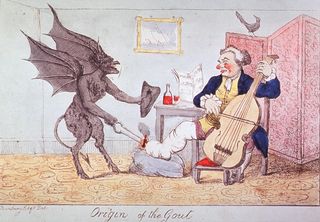Health
What’s in a Name? A Lot, When It’s the Label for a Disease
The name a disease is given may affect how well people deal with it.
Posted October 13, 2017

Sticks and stones may break my bones, but words can really hurt me. That’s the premise behind recent proposals to rename several common health conditions. A misleading moniker may lead to misunderstanding the nature of an illness—and that may undermine efforts to manage it.
Here are a few examples of diseases that may be due for a name overhaul, some experts suggest:
- Heart failure. This term implies that the heart has stopped working entirely, when, in fact, it simply isn’t pumping as well as it should. That’s no minor distinction to someone with the condition, who may react to the scary-sounding name with hopelessness or denial. One alternative term that has been suggested is cardiac impairment.
- Obesity. The American Association of Clinical Endocrinologists and American College of Endocrinology have proposed a name change to adiposity-based chronic disease (ABCD). It’s a less loaded term that is also more precise, proponents say, because it refers directly to adipose tissue (body fat) and its effect on long-term health.
- Polycystic ovary syndrome (PCOS). Having ovarian cysts is neither necessary nor sufficient for the diagnosis of this disorder in women, so PCOS is a misnomer. In 2012, a panel of the National Institutes of Health recommended changing the name. One possible alternative that has been suggested is metabolic reproductive syndrome.
On the excitement scale, deconstructing medical nomenclature ranks somewhere below watching paint dry. But words are powerful. The name given to a disease may influence how successfully affected individuals cope with it.
Gout by any other name
Consider gout, for example. This form of arthritis causes pain, swelling, redness, and stiffness of the joints, especially in the big toe.

Historically, gout was associated with an intemperate lifestyle. “People with gout were usually depicted as gluttons with bandaged feet overindulging in food and alcohol (often port),” says Keith Petrie, Ph.D., professor of health psychology at the University of Auckland.
Today, those stereotypes haven’t changed much. In a study published in 2016 in Arthritis Care & Research, Petrie and his colleagues analyzed descriptions of gout in recent articles from large-circulation U.S. and U.K. newspapers. Gout was often portrayed as a self-inflicted condition that was an embarrassment or a joke.
In reality, gout is caused by uric acid crystals building up in the joints and kidneys. Several factors may increase the risk of developing gout. They include genetics, aging, overweight, and coexisting health conditions (such as high blood pressure and kidney disease) as well as the consumption of alcohol and certain foods (such as liver, herring, mackerel, sardines, and scallops).
Having gout is no cause for shame. And it’s certainly no laughing matter for anyone dealing with a sudden onslaught of gout pain.
Rebranding gout attacks
Petrie wanted to know whether inventing a new name for gout—urate crystal arthritis (UCA)—would change people’s perception of the disease. For a study published this year in Health Psychology, he and his colleagues asked supermarket shoppers to read a brief description of a disease and answer questions about it. The descriptions were identical except for one thing: The disease was labeled either gout or UCA.
“The results showed that ‘gout’ was perceived as being more likely to be caused by the patient’s own behavior through poor diet and overconsumption of alcohol, while ‘urate crystal arthritis’ was more likely to be attributed to aging,” Petrie says. “The gout-labeled illness was also perceived as being more socially embarrassing, while the UCA-labeled illness was viewed as a more chronic and serious condition.”
In real life, taking medication to lower uric acid levels can help many gout sufferers prevent future attacks. But in the study, this type of long-term drug treatment was seen as being more beneficial for “UCA” than for “gout.”
“The name change in our study influenced people’s perception of the causes of the disease—and causes are important because they point to effective treatments,” says Petrie.
In short, the name used for gout—or any other disease—helps shape how people view it. And that, in turn, may affect how well they manage it.
References
Duyck, S. D, Petrie, K. J., & Dalbeth, N. (2016). “You don’t have to be a drinker to get gout, but it helps”: A content analysis of the depiction of gout in popular newspapers. Arthritis Care & Research, 68, 1721-1725. http://dx.doi.org/10.1002/acr.22879
Petrie, K. J., MacKrill, K., Derksen, C., & Dalbeth N. (2017, August 24). An illness by any other name: The effect of renaming gout on illness and treatment perceptions. Health Psychology. http://dx.doi.org/10.1037/hea0000548


